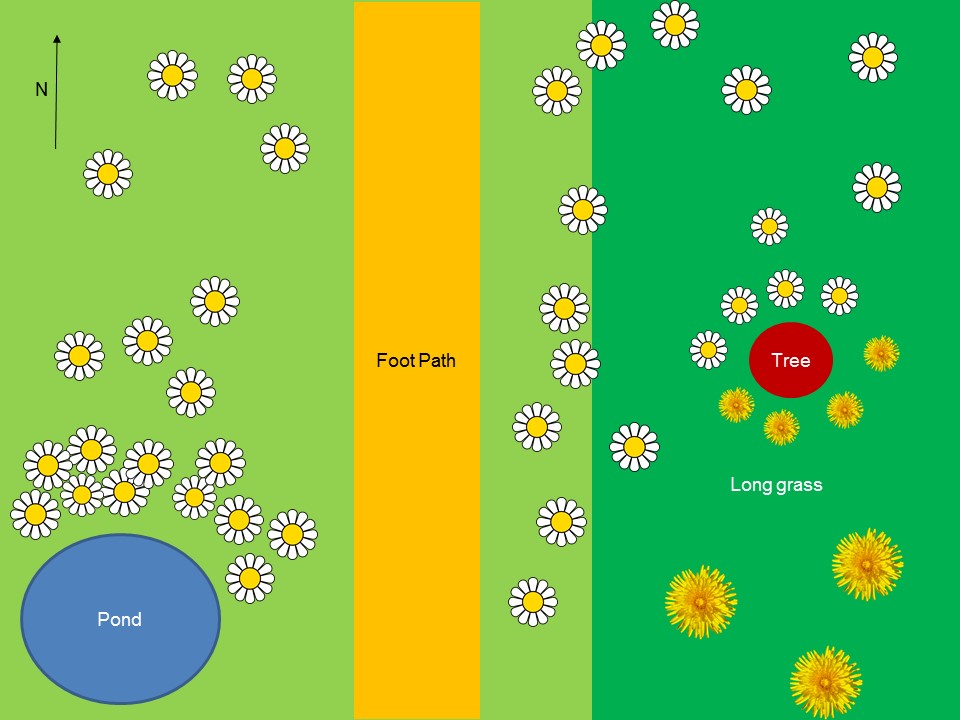Sampling techniques and fieldwork teaching resources
Worksheets and lesson ideas to challenge students aged 11 to 16 to think hard about ecological sampling (GCSE and Key Stage 3)
Biology fieldwork is equivalent to match day in football! It’s a time for students to use everything they have learnt about sampling, abiotic factors, evolution and interdependence to ask and answer some interesting ecological questions. It’s the pinnacle of what good inquiry looks like but it’s crucial that students go into the field ‘match ready’. Spend time teaching students key techniques before going outside and make sure they have the necessary knowledge to (i) ask relevant questions and (ii) explain their findings.
Random sampling with quadrats
 GCSE activity on random sampling and quadrats. Students use a random sampling method to estimate the number of daisies in a field and then compare this answer to the true value. Students also calculate a running mean so they are able to see if their sample size is large enough. (PDF)
GCSE activity on random sampling and quadrats. Students use a random sampling method to estimate the number of daisies in a field and then compare this answer to the true value. Students also calculate a running mean so they are able to see if their sample size is large enough. (PDF)
Supporting students to ask interesting questions for fieldwork
GCSE activity on sampling techniques for fieldwork. One of the biggest benefits of field work is that can support students to ask and investigate their own questions. This can be incredibly motivating. As with most questions in science, it starts whit an observation. So, the first part of any successful fieldwork involves supporting students to make observations and then ask questions. (PDF)
